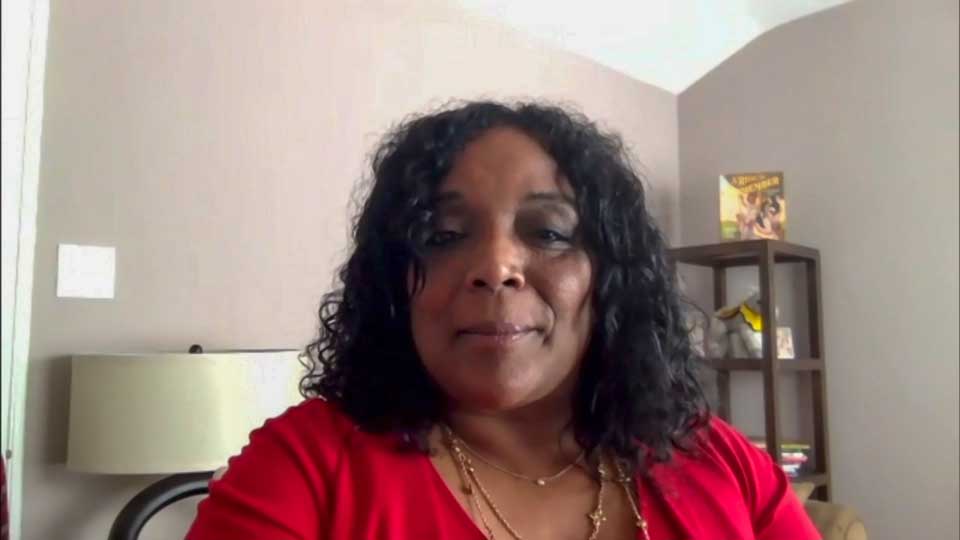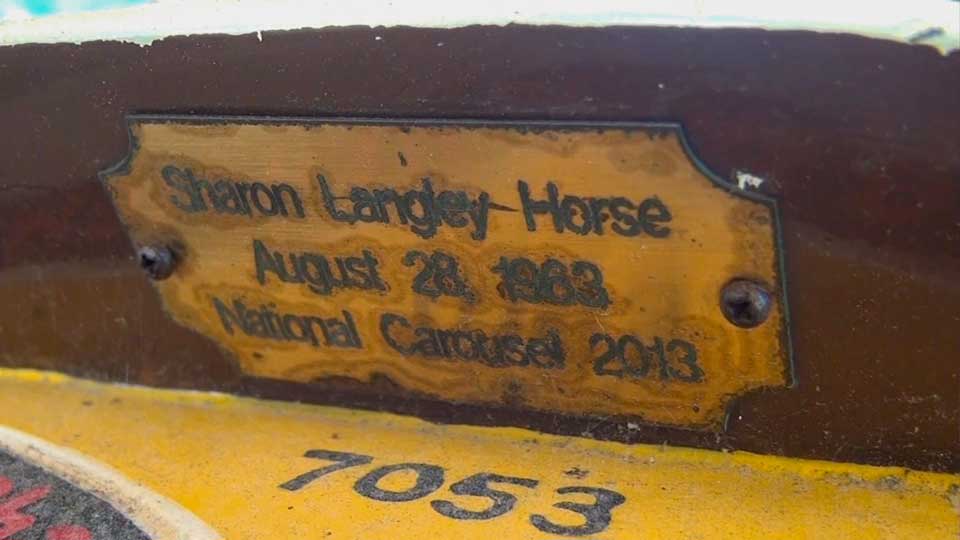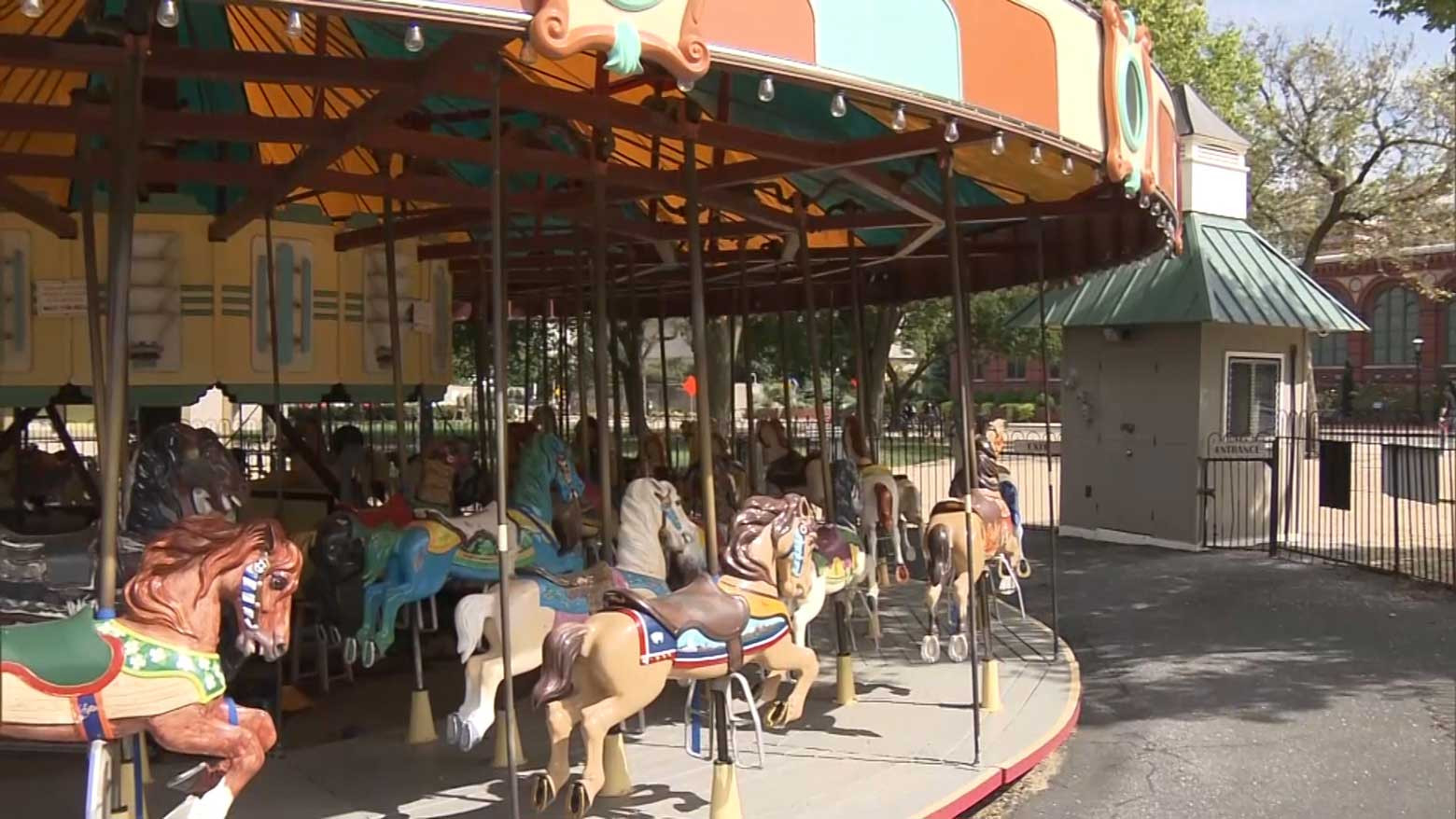Here, 57 years ago on August 28, Martin Luther King Jr. gave his "I Have a Dream" speech at the March on Washington. Now, the next generation of Americans are carrying on his quest for equality. Yolanda Renee King, granddaughter of Dr. King, spoke at the gathering as her grandfather did years ago, calling out the continued injustice and for people to stand together.
"My grandfather predicted this very moment. He said that we were moving into a new phase of the struggle. The first phase was civil rights and the new phase is genuine equality. Genuine equality is why we are here today and why people are coming together all across the world."
However, she is not the youngest one to make a pivotal stance for civil rights. Further down the National Mall stands an unassuming carousel that represents a quieter, but equally significant moment of civil rights history. On the same day Dr. King gave his speech almost six decades ago, 11-month-old Sharon Langley rode this carousel when it was in nearby Maryland at an amusement park that had until then been segregated.
On August 28, 1963, Langley and her family entered Gwynn Oak Amusement Park on the day it was desegregated, allowing Black Americans in for the first time. Langley's father placed her on the carousel, making her the first Black American to ride it in the park.
Over the years, Langley heard about the day from her family, but it wasn't until she met local author Amy Nathan that she learned the full story. Nathan wrote a novel about her and the history of DC civil rights in Round and Round Together. Wanting to share the history of civil rights with the younger generation, she teamed up with Nathan to co-author the children's book, A Ride to Remember. Langley points out that her ride into civil rights history was an achievement that resulted from the work and efforts of numerous activists.
"We need to think about all of the people who contributed to moving the discussion forward, who contributed to moving the issue into public view," says Langley. "And then ultimately at a point in the future, someone was able to walk through the gates, or walk through the door."

Langley notes that those involved in this chapter of civil rights continue to push the movement forward. As NHK dug into the history of the Carousel on the National Mall, some of these local activists' names came to light.
One is Charles Mason, a key organizer of protests against segregation at Gwynn Oak. He now conducts oral histories for local newspapers, universities and the Reginald F. Lewis Museum of Maryland African-American History.
Another is the late Stan Hunter, who owned and maintained the carousel after its move to the National Mall. He refurbished the horse Langley rode and created a plaque with her name and the names of the civil rights pioneers. He also erected a historical marker sharing its role in civil rights history.
Both Langley and Nathan were able to meet Stan, who renovated the landmark to reflect its newfound significance. His wife Donna and son Bruce continue to maintain the carousel to this day. Nathan mentioned how excited he was to have a part in sharing the story of civil rights.
"He didn't know the story of the carousel either until I started doing research on it," says Nathan. "When my book came out in 2011, he was really so thrilled by the story that he went back and figured out which horse Sharon had ridden. I think he was happy to know that the carousel he purchased had an important history."
Langley also expressed gratitude for Stan's contribution to the carousel and the horse she rode. "I'm very appreciative that he chose to refurbish the horse. All around the halter are the names of Freedom Riders and civil rights pioneers.

Across the country this year, protesters have advocated for racial and social equality, and Langley supports the younger generation's push for civil rights. She notes that there is still more to do in the fight for equality, and that small efforts can produce big changes.
"It was not really that long ago," she says. "And when you begin to see people fanning the flames of race-based injustice, then you realize that there's still more work to be done. I really think that a pebble, a small pebble, can make a large ripple."
Washington DC is one of the many cities where people have taken to the streets to seek change. It's also the place where two events 57 years ago pushed the civil rights movement forward. Dr. King's speech has echoed through history, but Langley's quiet ride also played a significant and memorable role. Thanks to the contributions of many over the years, the Carousel on the Mall now stands as a beacon of freedom and justice.
It is people like Langley, Nathan and the Hunters who are sharing its story of local advocacy. Many people are moving the discussion of racial and social equality in different ways. And whether it's preaching at the steps of the Lincoln Memorial, writing the history of a carousel, or taking to the streets despite the risks of a pandemic, advocacy for equality continues across generations. As Langley aptly noted, a small pebble can make a large ripple, just as the events of August 28, 1963 continue to create waves to this day.

